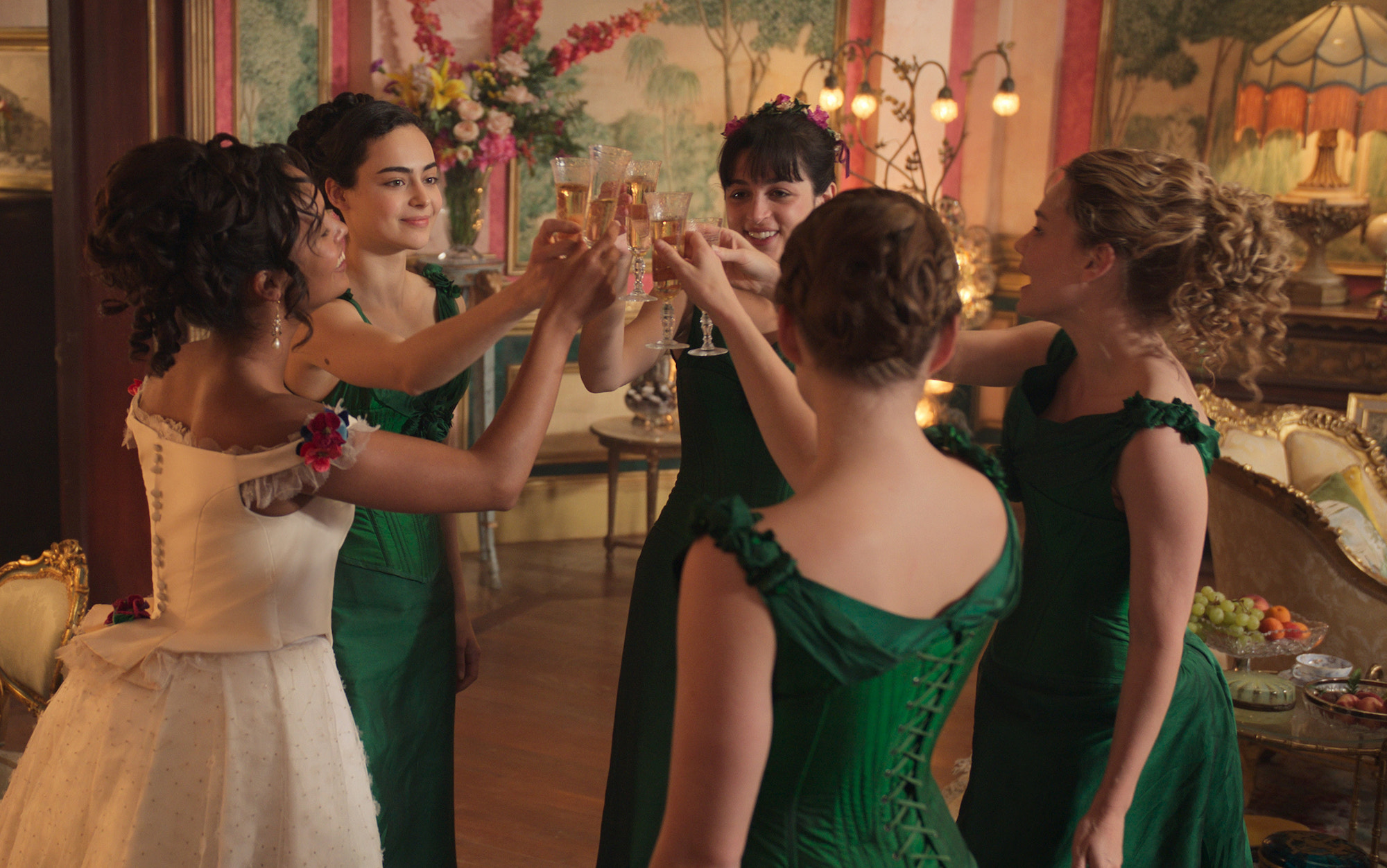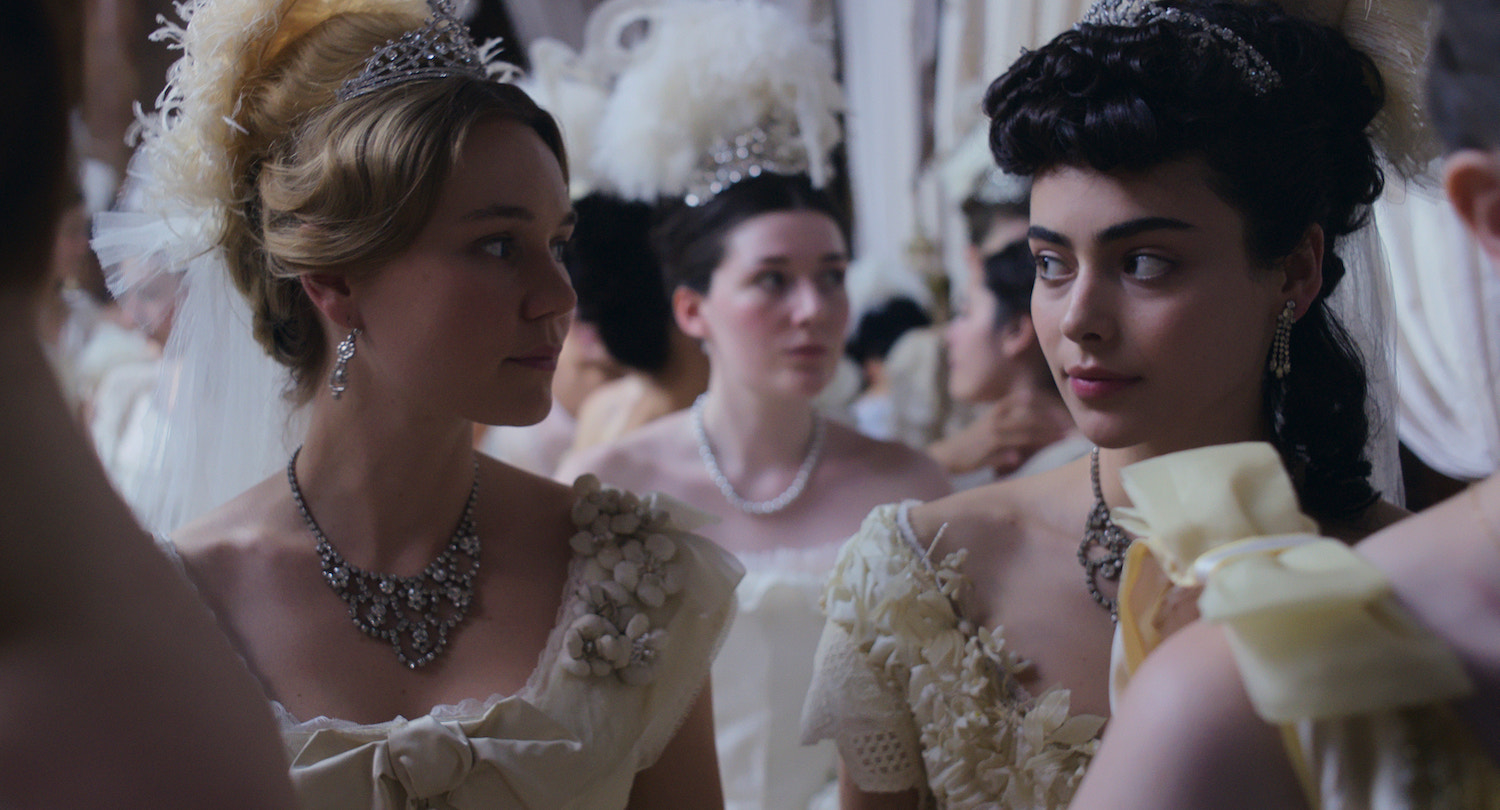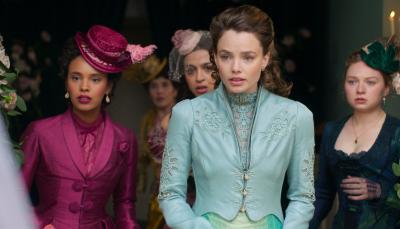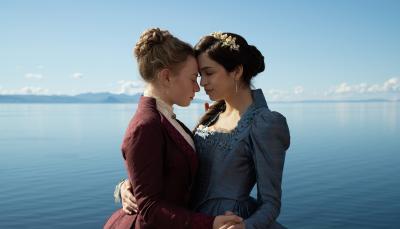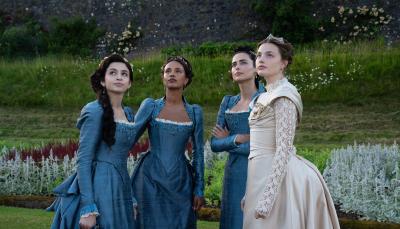'The Buccaneers' Production Designer Talks Creating a Period World with Modern Flair
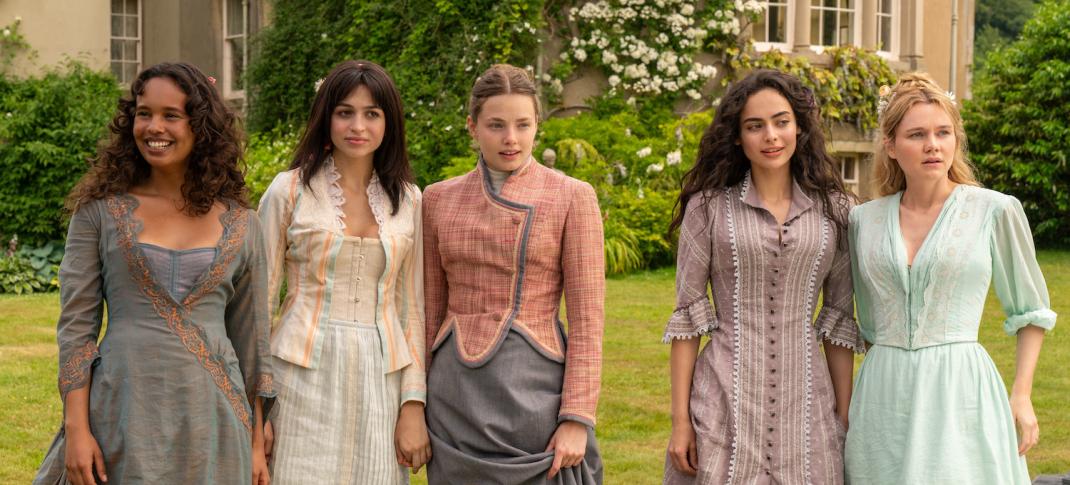
Alisha Boe, Josie Totah, Kristine Frøseth, Aubri Ibrag and Imogen Waterhouse in "The Buccaneers"
(Photo: Apple TV+)
Apple TV’s The Buccaneers is something of an unconventional adaptation of Edith Wharton’s final unfinished novel, a series that rejects prestige stateliness for a distinctly youthful attitude and contemporary feel. A show that’s often as brash and messy as the girls at its center, it’s certainly not perfect, but its determined, intersectional focus on female empowerment does manage to feel like a rather groundbreaking step for this genre at times.
The story of five best friends who are invited to England to search for husbands after one of their number marries a British lord, The Buccaneers explores the cultural clash between the nineteenth century American nouveau riche and the staid British aristocracy even as it allows its young heroines plenty of space to grow up and make mistakes along the way. Its youthful focus and more modern approach to storytelling add a delightful shot of excitement and genuine fun to a genre that often gets unfairly derided as staid and slow.
We had the chance to chat with The Buccaneers production designer Amy Maguire about how she and the rest of the series’ creative team came up with the world of the show.
Telly Visions: I’m excited to chat about The Buccaneers! I really loved the show, and the interesting things it’s doing with female stories. Something that stood out immediately to me, though was that it has an all-female creative team behind the scenes. How did that inform how you worked on the show?
Amy Maguire: It was immediately a very big draw for me, as soon as I knew about the show, I was just so excited---it’s so rare to have an all-female creative team.
I think there is a gentler, collaborative approach [because of it]. It felt like we were discussing the scripts in quite kind of an emotionally available way and there were subjects that are still relevant today, obviously, however heightened it might have seemed to be looking at feminism from the point of view of that era. But it was really nice to have that angle on it from the beginning.
Telly Visions: The Buccaneers is a period piece, but to me, it really feels quite modern in the way that it approaches almost everything. How did you balance the more traditional production elements that people tend to expect from a period drama with the more contemporary sensibility that is so prevalent in the show?
Maguire: We had discussions about the tone we were trying to hit with it from the beginning, because it’s a story that’s so heavily weighted around the girls’ friendship, and that feels quite modern. The aim was to make that feel quite sort of timeless in its core. So we talked about how we would sort of push the period a bit, particularly in the New York settings, where we use more modern fabrics and wallpapers and some repro furniture and brought lots of different kinds of combinations together for those sets, in particular, to try and make it feel fun and youthful and optimistic.
And we kept that in mind building the worlds and scenes set in the U.K. as well, looking to have big landscapes and using the scope we found in Scotland to have big views out to see and rolling hills. We definitely didn’t feel too restricted by the idea of the period.
Telly Visions: This leads perfectly to my next question, which is that this show also has really interesting things to say about culture clash. There's such a different feel to the American piece of it versus the U.K. piece of it. How did you decide how best to draw these very clear lines between what is British and what is American and how the American influence creeps into the British world?
Maguire: I think apart from anything else, we were trying to draw on how much further advanced American women were at that time. The very early conversation I had with Susanna [White], who directed the show, was about how she wanted the English women to almost feel like they were part of the furniture, so much so that you can barely distinguish where they were sat in a room and how the energy changed when these American women came into those spaces. And playing with the scale of spaces, where they felt small and intimidated but the colors of their costumes would really stand out in the environments that they were in/
We talked about how optimistic and forward-looking we wanted those American spaces to feel in comparison and really played on the kind of ancestral weight and formality of a lot of English society at that time in those places.
Telly Visions: I feel like every five seconds on this show there's a fancy ball happening. How fun is it to come up with like that many different cool parties?
Maguire: It was really, really fun. And I think---looking for the locations and settings for those spaces was really challenging. We had to find ways of varying them and making every episode feel like it had a very distinct feel or theme to it.
The debutante ball, for example, the decision to set that on a kind of MC Escher-style staircase that kind of descends endlessly was one that came out of seeing all of the huge expanse of white marble in the city chambers in Glasgow and then imagining all these women dressed almost alike, almost identically moving. Moving as a sort of carpet, just carpets of women.
Telly Visions: The girls in this show are all very distinctive, from the things they wear to their sort of general presences as people. How did you approach the process of figuring out how to fit all these very individual pieces in something that is still a cohesive whole.
Maguire: I think…because their friendship and their existence together is so central to the story, in terms of production design we certainly looked accentuate their emotional state rather than their character within the show. But certainly looking, again, at scale and color to try and
I think because of the friendship and their and their existence together being so central to the story. It's sort of I think, in terms of production design, we said, we certainly looked at how to how to kind of accentuate their emotional state more than perhaps the character within the show. But certainly looking at looking at again, scale and color to try and
Telly Visions: What do you hope that viewers take away from this show at the end of the day?
Maguire: From a design point of view, I hope that they enjoy the sort of the madness of it and how we did push, push, push it into a bit of a heightened play place now and again. But I also hope that it holds its message about female friendships and and the importance of not necessarily falling into line as a as a woman. I hope that can inspire a younger generation.
The first three episodes of The Buccaneers are now streaming on Apple TV+.

